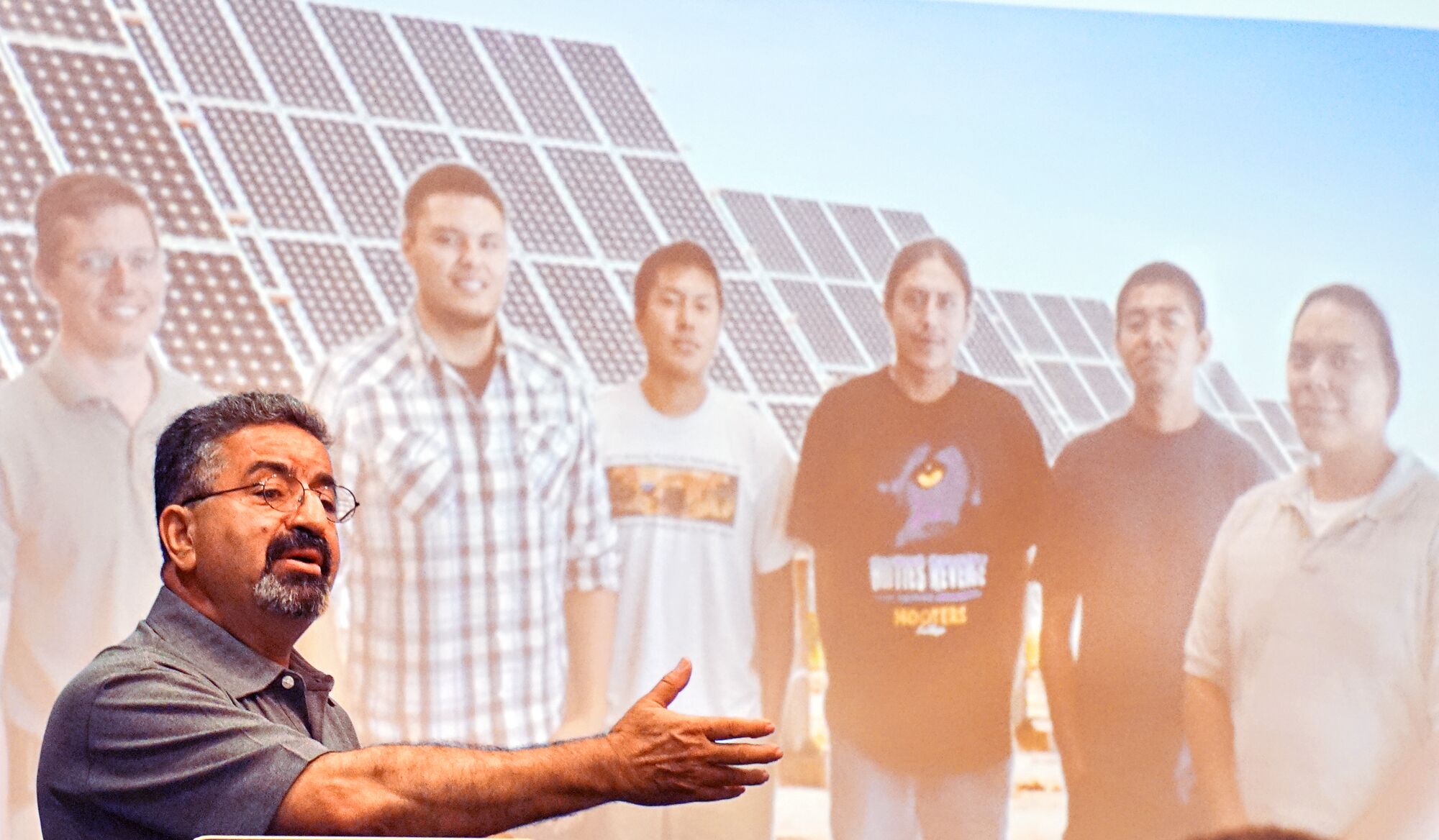
Dr. Nader Vadiee, Ph.D., professor at Southwestern Indian Polytechnic Institute, presents his research teams and STEM programs at the annual American Indian College Fund Research Convening in Denver, Colo. in 2016.
The American Indian College Fund congratulates Dr. Nader Vadiee, Ph.D., a professor at Southwestern Indian Polytechnic Institute (SIPI), on the announcement by The WICHE Cooperative for Educational Technologies (WCET) that he is the winner of the first Digital Inclusion Award.
WCET said in the announcement, “This award is a unique recognition of an individual, organization, or program that has shown significant impact on first generation learner populations regarding advancing the digital inclusion of students.
Dr. Vadiee’s work promotes digital inclusion by advancing the interests of Native American and Hispanic students in Information Technology and Science, Technology, Engineering, and Math (STEM) fields. Dr. Vadiee and his associates have developed an immersive robotics program to provide an enriching learning experience to interest students in STEM Fields. Their program participants have had a significant increase in enrollment and completion in STEM or IT courses. The Southwestern Indian Polytechnic Institute has seen a significant increase in graduation rates in their Pre-Engineering associate’s degrees, followed by continuation at the university level. Their programming involves working with Native American-serving high schools and feeder middle schools.”
Dr. Vadiee will be presented with the Digital Inclusion Award at the GlobalMindED Conference June 21-23, 2017 in Denver, Colorado.
About WCET
The WICHE Cooperative for Educational Technologies (WCET) is the leader in the practice, policy, and advocacy of technology-enhanced higher education. WCET is widely recognized as one of the most informative, reliable and forward-thinking organizations regarding the role of technology and innovation in higher education. For more information about WCET’s institutional membership resources and services, please visit the WCET website.
About GlobalMindED
GlobalMindED is the first U.S conference of its caliber that brings first-generation college students together with educators, industry professionals, global entrepreneurs, policy makers, and the nonprofit sector to promote access and opportunity for college and workplace success. GlobalMindED convenes to address one of the nation’s most pressing issues: increasing access and opportunity for first-generation students to create a capable, diverse talent pipeline. More information and proposals to participate (open until December 1, 2016) can be found on the GlobalMindEd website.
